The annual UN climate summit began on an extraordinarily positive note on November 30, responding to the needs of vulnerable countries facing the unavoidable impacts of climate change. The 28th Conference of Parties (COP28) launched a fund dedicated to addressing the losses and damages resulting from the climate crisis – a longstanding demand from developing and under-developed countries that have contributed the least to global warming.
The announcement was met with a round of applause in Dubai, where the summit is on until December 12. Parties had agreed to establish the fund at the COP27 in Sharm el-Sheikh, Egypt, in 2022, making this year’s swift decision to operationalise the fund, “unprecedented,” COP28 President, Sultan Al Jaber, said at the summit’s opening ceremony. Immediately after the fund’s adoption, several countries – led by the United Arab Emirates (UAE) – pledged upwards of a total of $300 million to the fund.
The fund’s early adoption broke precedents in several ways, said Joe Thwaites, senior advocate for international climate finance at the Natural Resources Defense Council, a United States-based environmental advocacy group. “Typically, with other funds, it has taken years to get pledges after they have been operationalised. But here, pledges came in literally seconds after it was adopted,” he told reporters.
India’s Environment Minister Bhupender Yadav thanked the COP28 President, during the plenary, calling the operationalisation of the fund a “landmark” decision.
The World Bank will temporarily host the fund for four years, provided it agrees to certain conditions to ensure the fund will have an independent board and secretariat and the power to design its policies, which can supersede those of the World Bank in case of a conflict. The World Bank has not yet indicated if it will agree to these conditions. Developing countries that the fund will serve called the deal a compromised one because of the World Bank’s donor and loan-driven business model.
The fund’s launch is nonetheless being celebrated as a step towards recognising the needs of countries that have reached their adaptive limits. Experts say, for contributions to be meaningful, the fund needs to be new and additional to existing developmental aid, or other types of climate finance that are sent to developing countries.
“We need substantial, more money to flow, and that is not going to come from existing taxpayer’s money,” said Avinash D. Persaud, Professor Emeritus at Gresham College in the U.K. and special envoy to the Prime Minister of Barbados. “Additionality is key. One of the things we were concerned about was reclassifying humanitarian assistance and developmental assistance as loss and damage. We need additional, new sources of revenue,” he added.
Too little to meet escalating need
Some estimates say funding for climate-related losses and damages will reach around $400 billion annually by 2030. The pledges are “not enough to send a strong signal on what the potential scale of the fund should be,” Liane Schalatek, an expert in climate finance and associate director at think tank Heinrich-Böll-Stiftung Washington, told Mongabay India.
The UAE and Germany pledged $100 million each to the fund, followed by $50.5 million from the U.K. and $10 million from Japan. The U.S. – the world’s largest historical emitter – pledged only $17.5 million to the fund. The U.S. owes billions of dollars in undelivered climate finance to developing countries, as per its fair share of the $100 billion climate finance goal, committed in 2009, says a study by think tank ODI, released this year.
During the plenary, special envoy to the U.S. John Kerry said the “scale of the challenge is simply too large for any government to be able to finance alone,” indicating support for market mechanisms to scale up contributions to the fund – a contentious proposal that developing countries may oppose. “We need a fund that is grant-based, focussed on extreme events and slow onset events,” Persaud said.
Schalatek of Heinrich-Böll-Stiftung Washington called the U.S. pledge of $17.5 million “ridiculous.” “There are equity considerations here because the U.S. is the largest historical emitter,” she said, adding, “It is a tiny amount for a country that was pushing to have the fund under the World Bank, which is a big concession for developing countries.”
More pledges to the loss and damage fund are expected during the World Climate Action Summit from December 1-2.
Smooth adoption of agenda, but tough negotiations ahead
On the agenda for the rest of the COP28 are talks negotiating a just transition framework to move away from fossil fuels, scaling up climate finance and measures for climate mitigation and adaptation. The agenda was adopted without any objections – an effort spanning months, to address the diverging concerns of all Parties involved in the negotiations, Al Jaber said.
The adoption of the agenda “demonstrates true intent and alignment amongst Parties and shows the progress the world has made this year in uniting to address climate change and deliver critical outcomes,” he added.
But individual submissions by Parties and Party blocs ahead of the COP28 suggest tough negotiations ahead, particularly on carbon trade, equitable climate action and scaling up climate finance for adaptation.
Days before the summit, India, along with Brazil, South Africa, and China, wanted a separate agenda item on measures that could curb international trade, arguing that unilateralism and protectionism “seriously undermine multilateral cooperation and the ability of the concerned countries to combat climate change.”
The U.K.’s Carbon Border Adjustment Mechanism (CBAM) – a tariff on carbon from imported goods and services designed to plug “carbon leakage” – is a recent example of a cross-border trade mechanism that prices carbon in an effort to reduce emissions.
To avoid conflict at the beginning of the summit, the President said the issue would be discussed in existing negotiation tracks, where consensus may be split. Similarly, the Like-Minded Developing Countries – a group of 24 countries including India – submitted an agenda pushing for wider application of equity as a principle in the Paris Agreement.
Instead, this will be negotiated in the Global Stocktake, Al Jaber said. The Global Stocktake (GST) is an assessment of the implementation of the Paris Agreement since it entered into force in 2016. The outcomes of the GST will inform new climate targets countries will make in 2025.
Source : India Mongabay

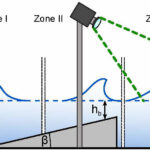

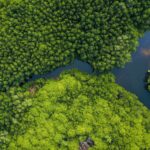
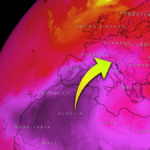



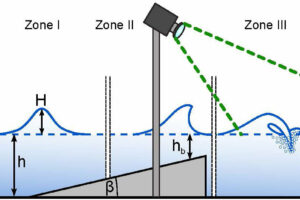
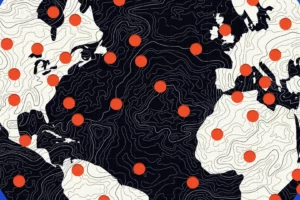
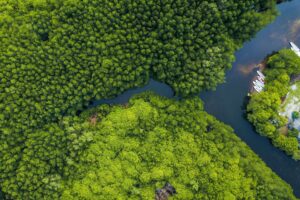
Add Comment